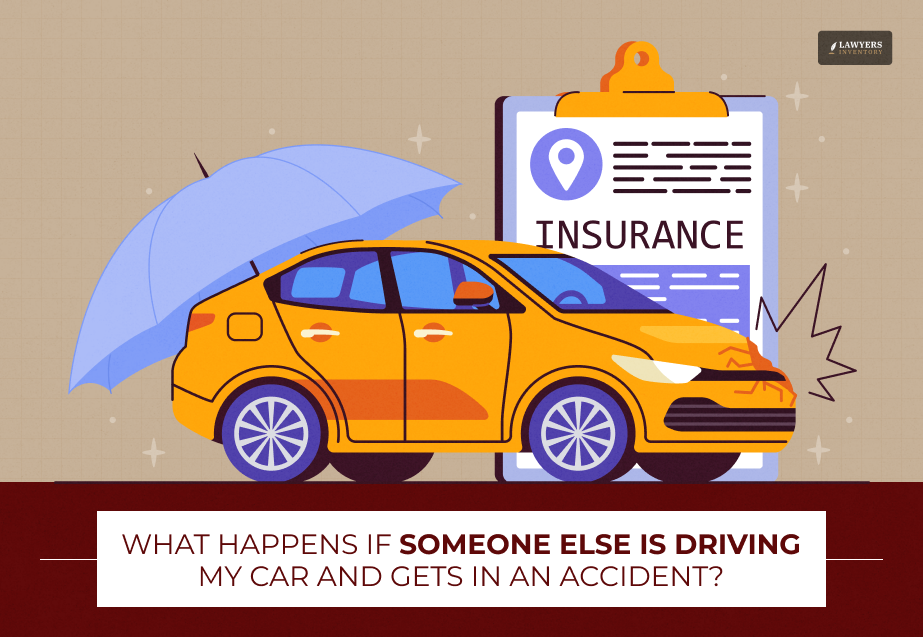
If you’re wondering what happens if someone else is driving my car and gets in an accident, you’re not alone.
It’s a common concern for car owners who lend their vehicle to a friend, family member, or even a coworker.
While letting someone borrow your car might seem harmless, things can quickly get complicated if they end up in a crash.
Who’s responsible? Will your insurance cover the damages? Could you get in trouble even if you weren’t driving?
Hi. In today’s blog, I will explain everything about how it works, what your insurance covers, and what steps to take if this situation ever happens to you.
So, if that is what you want to know, keep on reading till the end, and thank me later…
What Happens If Someone Else Is Driving My Car And Gets In An Accident?
In most cases, car insurance follows the car, not the driver. That means if you gave someone permission to drive your car and they got into an accident, your car insurance would usually step in first to cover the damage.
However, things aren’t always so straightforward. Whether or not your insurance pays—and how much it pays—depends on a few important things:
- Did you give the person permission to use your car?
- Are they covered under your policy?
- What kind of coverage do you have?
- Were they doing something illegal or reckless?
If the person didn’t have permission, or if they were doing something dangerous (like driving drunk), your insurance company might not pay.
In that case, the person who caused the accident might have to use their own insurance—or pay out of pocket.
Let’s break this down further.
Does Car Insurance Work If Someone Else Crashes Your Car?
Yes, car insurance typically covers accidents caused by other drivers, but only if:
- You gave them permission to use your car.
- They are licensed and driving legally.
- The use was not for business purposes (like ridesharing or deliveries), unless your policy allows it.
If all those boxes are checked, your insurance usually works like this:
- Your car insurance (the owner’s) pays first.
- The driver’s insurance (if they have any) might help cover extra costs that go beyond your limits.
This setup is called primary and secondary insurance coverage. Your policy is “primary,” and the driver’s policy is “secondary.”
What Does a Car Insurance Policy Cover?
Most standard car insurance policies include a few types of coverage. Here’s what they usually cover if someone else crashes your car:
- Liability Coverage: Pays for damage or injuries the driver caused to other people or their property.
- Collision Coverage: Helps fix or replace your car after an accident.
- Comprehensive Coverage: Covers non-accident damages like theft, fire, or storms.
- Medical Payments/Personal Injury Protection: Helps with medical bills for anyone injured in your car.
If your policy only includes liability coverage, it might not pay to fix your car—only the other person’s damage. That’s why it’s important to know what’s included in your plan.
Should You List All Drivers on an Insurance Policy?
Yes, it’s a good idea to list all regular drivers of your car on your insurance policy. This includes:
- Family members living in the same house
- Roommates who borrow your car often
- Friends who regularly drive your vehicle
Why? Because insurance companies want to know who’s most likely to drive your car. If someone crashes your car and they weren’t listed, your insurer might deny the claim or raise your rates.
However, if the person only drives your car once in a while, they’re usually covered as a “permissive driver.”
What Factors Influence the Liability Coverage in Car Accidents?

When someone else crashes your car, your liability coverage depends on:
- Permission: If the driver had your permission, your insurance usually covers it. No permission? The claim might be denied.
- Driver’s Relationship to You: Immediate family members may need to be listed. Friends or guests may be covered under “permissive use.”
- Type of Use: If your car was being used for delivery, rideshare, or a job, your personal policy may not cover the accident.
- Driving History: If the driver has a bad driving record, your insurer might increase your premiums later—even if you weren’t driving.
- State Laws: Some states have special rules about liability, fault, and insurance. In California, for example, fault matters a lot when deciding who pays.
These factors all help determine how much your insurance company will pay—or if they’ll pay at all.
How Long Will It Take to Settle Car Accident Claims?
The time it takes to settle a car accident claim when someone else was driving can vary. Some claims are handled quickly, within 30 to 60 days, while others can drag on for months or even a year—especially if:
- There’s a dispute about who was at fault
- The damage is serious or involves injuries
- Multiple insurance companies are involved
- A lawsuit is filed
If the claim is straightforward and your insurance agrees to pay, it’s usually faster. But if the driver didn’t have permission or wasn’t covered under your policy, things can get more complicated.
To speed things up, make sure you:
- Collect and submit all paperwork (police reports, insurance info, photos)
- Keep in touch with your claims adjuster
- Be honest and clear about what happened
Who Can Help You With Car Accident Claims?
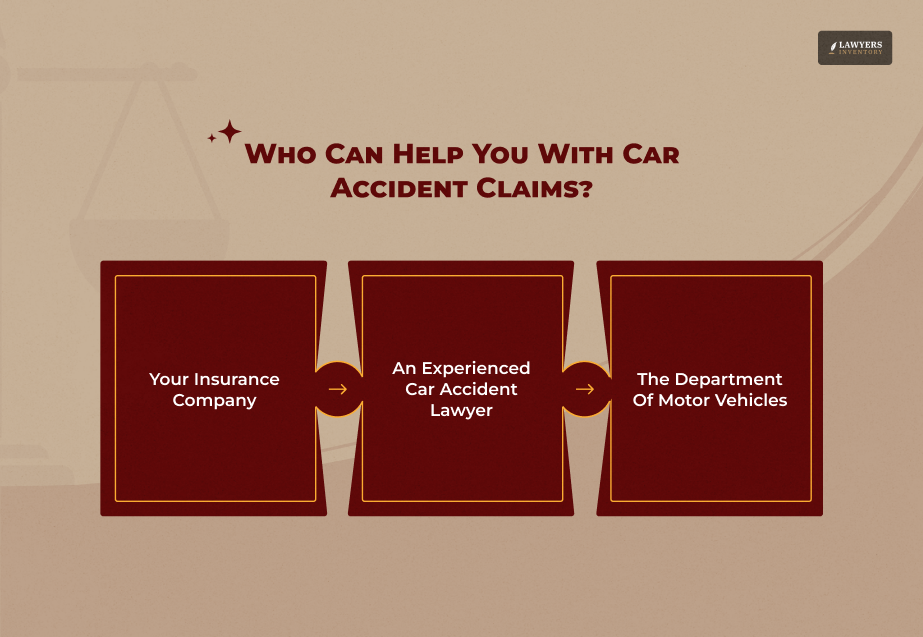
If someone else crashes your car and the situation gets confusing, it’s smart to reach out for help. Here are your best options:
1. Your Insurance Company
Start by calling your insurance company. They’ll explain what’s covered, how the claim process works, and what you need to do. They may assign a claims adjuster to review the damage and speak with other parties.
2. An Experienced Car Accident Lawyer
If there are injuries, big damages, or disagreements over who was at fault, a personal injury attorney can help protect your rights. They’ll:
- Deal with the insurance companies for you
- Help you understand your coverage
- Fight for a fair settlement
- Guide you if the case goes to court
Most car accident lawyers offer free consultations, and many work on a “no win, no fee” basis, meaning you only pay if they win your case.
3. The DMV (if needed)
In California and some other states, you may need to report the accident to the Department of Motor Vehicles (DMV) if the damage is above a certain amount or someone was injured. Check your state’s rules to be sure.
Read Also:
- The Benefits of Hiring Car Accident Lawyers After a Crash
- Key Questions to Ask a Car Accident Lawyer Before Hiring
- Hit and Run Cases: How Long Will It Take For the Police to Find Culprits?






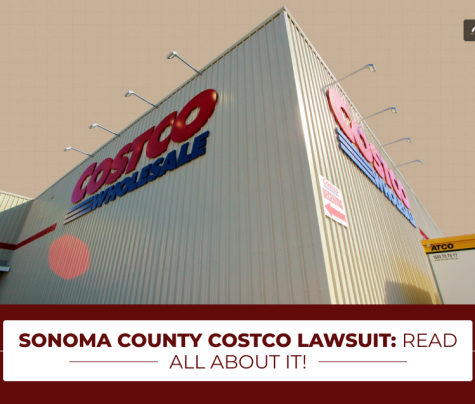
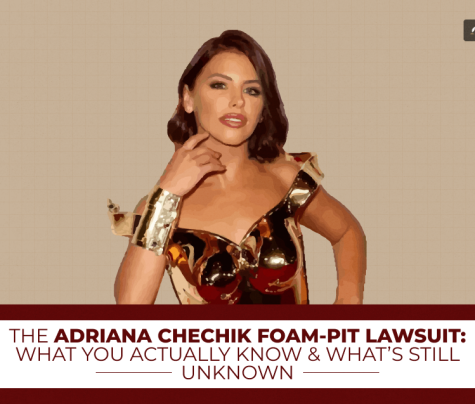
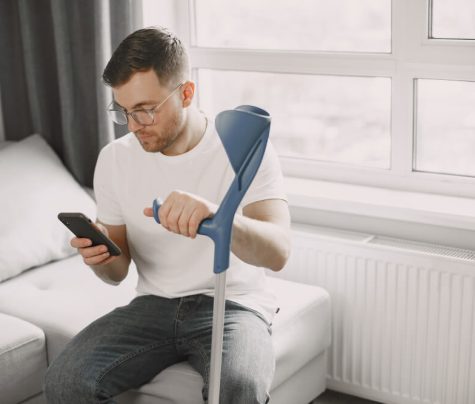
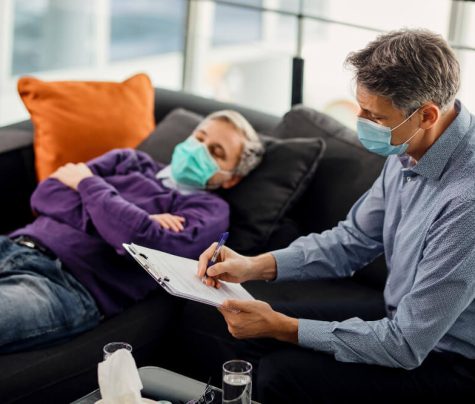

0 Reply
No comments yet.